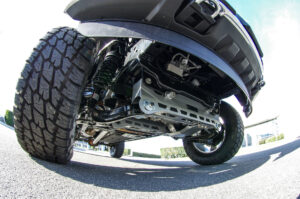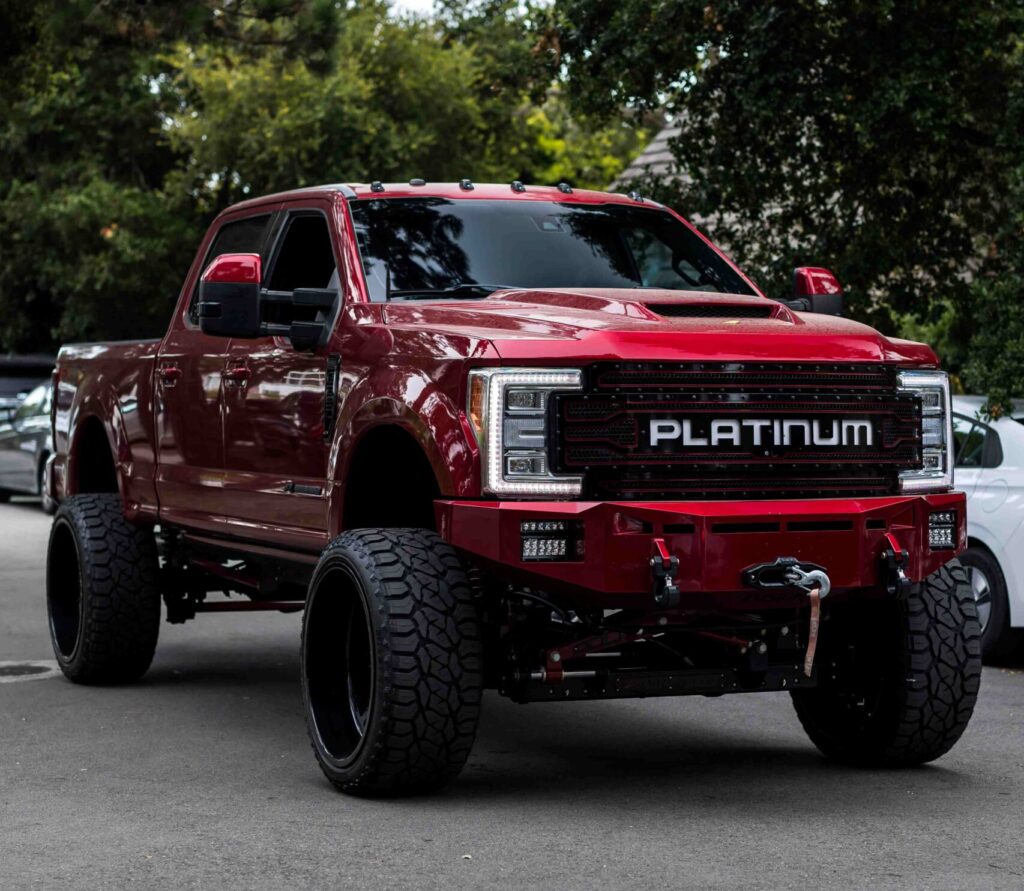Do Lift Kits Void Warranty?
A common concern among vehicle owners is if lift kits void warranty, and rightfully so. The straightforward answer is no; installing a lift or level kit itself does not automatically void your manufacturer warranty. However, it’s crucial to understand that if issues arise, and the dealer attributes them to the lift kit, they might use it as grounds to deny warranty claims.
Lift and level kits offer aesthetic appeal, increased ground clearance, and the ability to accommodate larger tires. While these modifications may enhance your vehicle’s performance, they also put strain on existing components. Manufacturers invest time and money in engineering a cohesive system, and any alterations that push these components beyond their limits may lead to warranty complications.
the Magnuson-Moss Warranty Act stands as a crucial safeguard for consumers exploring modifications like leveling kits and lift kits. Enacted in 1975, this federal law establishes standards for warranties on consumer products, ensuring manufacturers uphold their warranty obligations. Specifically relevant to leveling kits and lift kits, the Magnuson-Moss Act asserts consumers’ rights to choose aftermarket parts without the fear of voiding their vehicle warranty, provided these parts aren’t proven to be the direct cause of a warranty claim.
Protecting Your Warranty
- Manufacturer-Approved Kits: Many vehicle manufacturers offer “approved” lift and level kits that won’t void your warranty. These kits have been vetted by engineers and attorneys to ensure they won’t cause excessive strain on existing parts. Though they may come at a premium price, it’s akin to investing in extended warranty coverage.
- Smart Cost Savings: If you’re wary of the dealership’s premium prices, consider “mirroring” a manufacturer-approved kit. Find a similar kit from a reputable source at a lower cost. While riskier, using parts and tolerances approved by the dealer increases your chances of a valid warranty argument.
The Risks of Lift Kits
Lifting your truck is a popular modification with benefits like better clearance and improved appearance. However, it’s essential to recognize potential risks:
- Unnecessary Modification: Lift kits are often deemed unnecessary modifications, violating manufacturer warranties.
- Comfort and Safety Concerns: Some lift kits may make driving less comfortable, potentially leading to more accidents, which manufacturers aim to avoid.
- Third-Party Installations: Improper installation by third-party services can cause significant damage and may void the warranty.
- Rust and Damage: High-rise lift kits expose your vehicle to rust and external damage, leading to costly repairs and potential warranty issues.
What to Do If Your Warranty is at Risk
If you’ve installed a lift kit and are concerned about your warranty:
- Check Third-Party Warranties: Ensure the third-party company provides warranties on parts related to the lift kit.
- Document Threats: If warranty threats are made, get them in writing and signed by the manufacturer for reference.
- Contact the Manufacturer: If warranty repairs are refused unjustly, contact the vehicle’s manufacturer promptly to address the issue.
While lift kits can enhance your vehicle’s capabilities, it’s crucial to weigh the potential risks and take steps to protect your Mopar Warranty. By making informed decisions and following the suggested precautions, you can enjoy your lifted vehicle without compromising your warranty coverage.

Will A Leveling Kit Void My Warranty?
Leveling kits have become a popular choice among enthusiasts for achieving an appealing front-end height and ground clearance. However, the lingering concern is whether installing a leveling kit could potentially void your vehicle warranty. In this article, we’ll explore the nuances surrounding this question and shed light on the factors that might affect your warranty claim.
The short answer is no, a leveling kit typically doesn’t void your entire warranty. However, the warranty status can vary depending on your vehicle manufacturer’s policies. Some manufacturers offer their own approved leveling kits, ensuring that the warranty remains intact. On the flip side, using non-approved leveling kits may lead to warranty denial if damages are attributed to these modifications.
It is essential to check your vehicle manufacturer’s policies regarding leveling kits and suspension modifications. Some companies explicitly state that any alterations, especially those involving third-party components, can potentially void the warranty. On the other hand, using manufacturer-approved leveling kits may actually extend your warranty.
What Is A Leveling Kit Vs A Lift Kit?
When it comes to enhancing the stance and performance of your vehicle, the choices can be overwhelming. Two popular options, leveling kits and lift kits, often spark curiosity and confusion. In this post, we’ll break down the basics, exploring the key distinctions between leveling kits and lift kits to help you make an informed decision for your automotive aspirations.
A leveling kit is designed to address the natural front-end downward slope that some trucks and SUVs exhibit. This kit lifts the front of the vehicle slightly, leveling it with the rear. The primary goal is not to alter the overall height drastically but rather to achieve a more balanced and aesthetically pleasing look. Leveling kits are commonly used to accommodate larger tires and improve ground clearance.
On the other hand, a lift kit is a more comprehensive modification aimed at increasing the overall ride height of the vehicle. Lift kits come in various types, including body lift kits that raise the body from the frame and suspension lift kits that elevate the entire suspension system. Lift kits are favored by off-road enthusiasts, providing greater ground clearance and the capability to navigate challenging terrains.
Key Differences:
- Purpose: The primary purpose of a leveling kit is to level the vehicle and address its natural slope, while a lift kit is intended to raise the overall height for enhanced ground clearance and off-road capabilities.
- Height Alteration: Leveling kits typically provide a modest lift to the front, maintaining a leveled profile. Lift kits, on the other hand, can significantly raise the entire vehicle, offering a more pronounced height adjustment.
- Common Applications: Leveling kits are often used for aesthetic improvements and accommodating larger tires, while lift kits are popular among off-road enthusiasts seeking improved performance on challenging terrains.
Deciding between a leveling kit and a lift kit depends on your specific goals and usage. If you’re aiming for a leveled appearance and increased ground clearance for everyday driving, a leveling kit might be the ideal choice. On the other hand, if you have off-road adventures in mind and require substantial height adjustment, a lift kit may be more suitable.
Installation and Considerations:
Both leveling kits and lift kits require proper installation for optimal performance. It’s essential to follow manufacturer guidelines and, in some cases, seek professional assistance. Additionally, be mindful of your vehicle’s warranty, as certain modifications may impact coverage.
In the world of automotive customization, understanding the difference between leveling kits and lift kits is crucial. Whether you’re looking for a subtle aesthetic upgrade or gearing up for off-road exploration, choosing the right kit will define your vehicle’s performance and appearance. Evaluate your needs, consider the key differences, and embark on the journey of elevating your ride with confidence.




